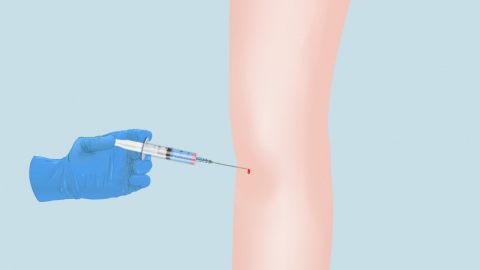Is penicillin effective for infections caused by animal bites?
Common injectable forms of penicillin include potassium penicillin for injection and sodium penicillin for injection. Generally, whether penicillin is effective against infections caused by animal bites needs to be determined based on the specific type of infection. If discomfort symptoms occur, it is recommended to seek timely treatment at a qualified hospital. Detailed analysis is as follows:

If the infection from an animal bite is caused by Gram-positive bacteria, penicillin usually has a certain therapeutic effect. These bacterial infections often lead to redness, swelling, pain, and pus formation at the wound site. Penicillin can kill these bacteria by inhibiting bacterial cell wall synthesis, thereby controlling the spread of infection, reducing local inflammatory response, and promoting wound healing.
If the infection is caused by Gram-negative bacteria or anaerobic bacteria, the effectiveness of penicillin is often limited. Pasteurella infection may cause rapid swelling and exudation at the wound site, and even systemic symptoms; anaerobic bacterial infection may lead to deep tissue necrosis and a foul odor at the wound site. Penicillin has a weak bactericidal effect on these pathogens, making it difficult to effectively control the infection.
Before using penicillin, it is necessary to identify the type of infecting bacteria and have a qualified physician determine its appropriateness. Closely monitor physical reactions during treatment; if allergic symptoms such as rash or difficulty breathing occur, discontinue the medication immediately and seek medical attention. Strictly follow medical instructions for medication use—do not adjust the dosage or stop taking the medication without authorization. Keep the wound clean and dry during treatment to avoid secondary infection.










